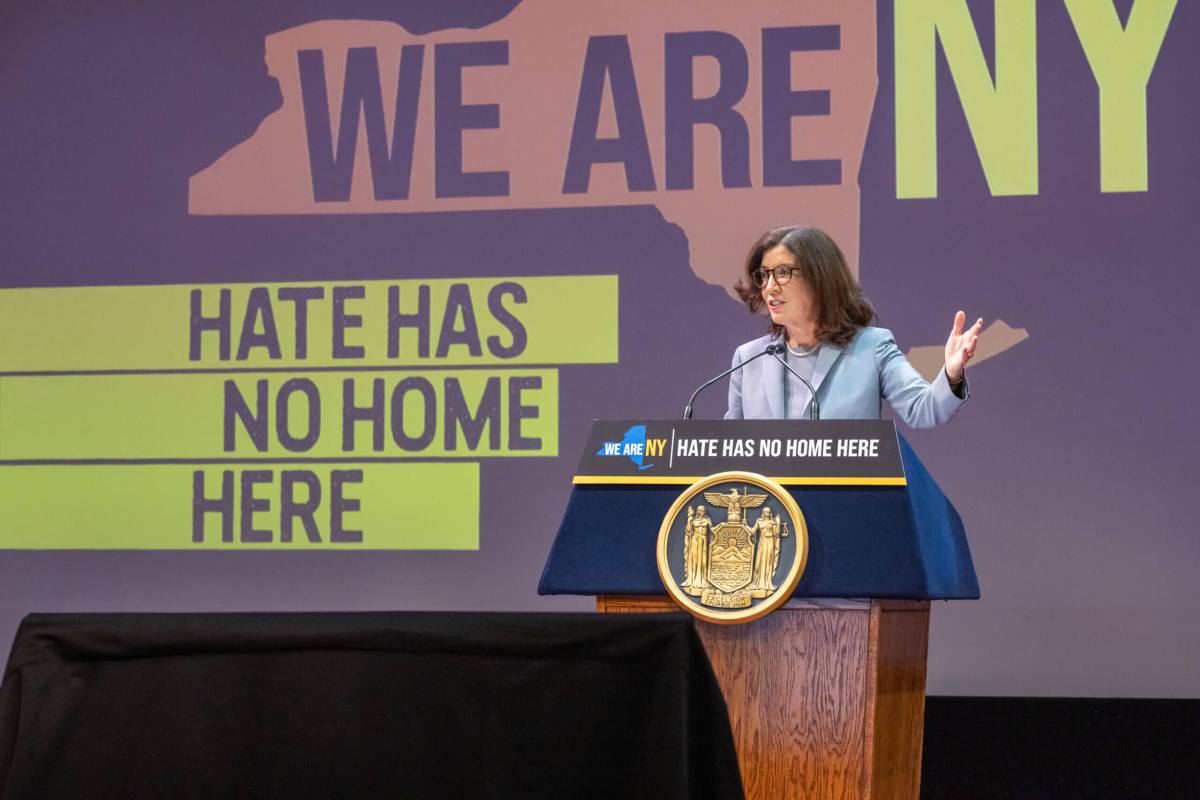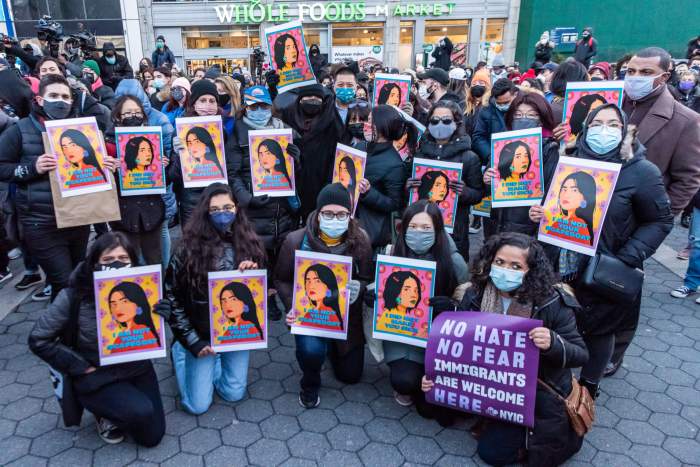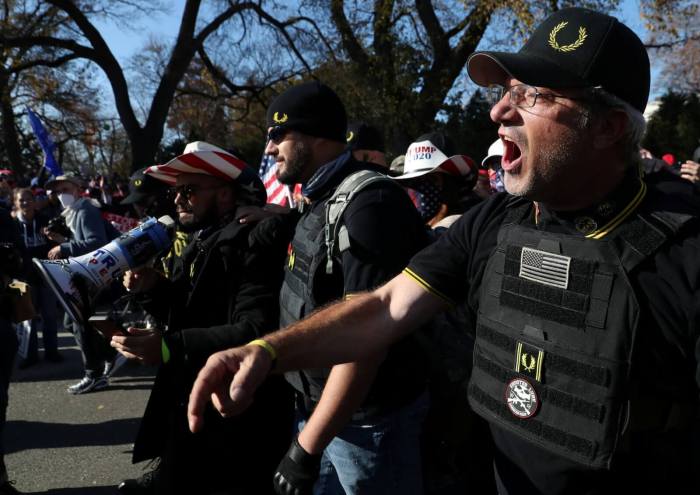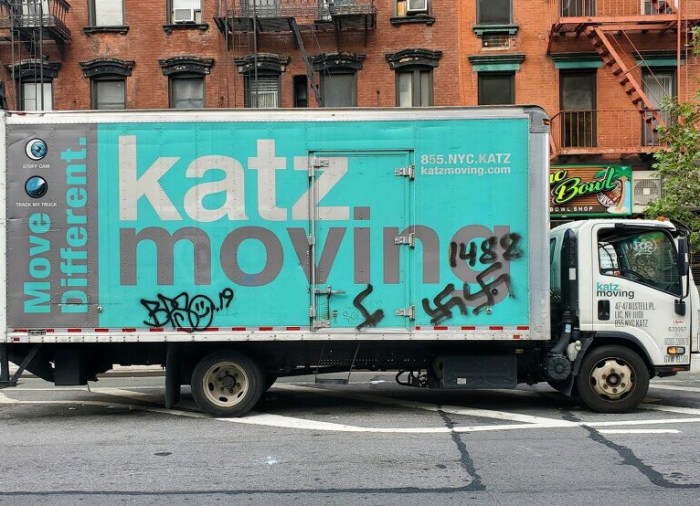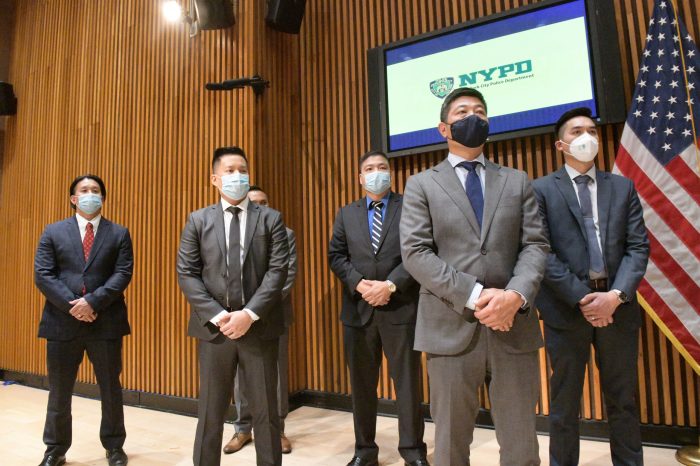Governor Kathy Hochul has committed more than $51 million to local non-profits to help them beef up their security and safety measures to combat hate crimes.
Hochul made the announcement today that the state would be doling out the funds across the Empire State, which has seen a jump in the number of bias attacks.
“Hate has absolutely no place in our state, and we will continue to do whatever it takes to make sure every New Yorker is safe from baseless violence that stems from prejudice,” Hochul said in a statement. “This is a historic investment in the communities that need our help the most, and with these funds, New York’s most at-risk organizations will be able to invest in the security measures they need to stay safe.
“In the face of disgusting vitriol and violence, I want to be clear: we are not afraid. If you attack one of us, you attack us all — and no one wins a fight against New Yorkers.”
The funds will be available through New York’s Securing Communities Against Hate Crimes Grants program. Non-profit organizations can apply for the grants, which—for the first time—will focus on cybersecurity, according to Hochul’s office.
The new funds will not be directed toward any one specific group, or to prevent a distinct type of hate crime. The grants will instead be available to any organization potentially in danger due to their ideology, beliefs or mission.
According to the governor’s office, 947 hate crimes were reported across the state in 2022 — marking a 20% jump from 2021. Last year’s number represented the most such crimes reported in the last half-decade. However, many hate crime go unreported, advocates say.
In addition to making the new funds available, Hochul also signed a bill directing advisory committees at colleges to review their protocols for dealing with hate crimes, including educating the student body and reporting on various forms of crimes motivated by bigotry.
The bill was sponsored by Queens Assembly Member Daniel Rosenthal, who highlighted the need for colleges to address hate crimes occurring on their campuses.
“Every student has the right to feel safe and protected on their college campus. We cannot allow educational institutions to become asylums of antisemitism, bigotry and hostility. This bill will allow the public to realize if any individual institution has a particular problem — and whether its administration is taking proper steps to address it,” said Rosenthal.
According to a federal Department of Education study, vandalism and the destruction of property are the most common hate crimes on college campuses, followed by instances of intimidation and assault.
For his part, SUNY Chancellor John B. King, Jr., who runs the largest network of higher education institutions in the state, welcomed the new measures.
“SUNY is committed to ensuring the security and sense of belonging of all members of the campus community, and we will continue to build on our efforts to inform, support, and protect SUNY’s students, faculty, and staff,” he said.
Hochul officially signed the legislation at a ceremony at the Museum of Jewish Heritage in New York City.
“I’ve spoken to many Holocaust survivors, and they see the same winds starting to swirl around that their parents and grandparents, and they saw as children, were happening at that time,” Hochul said at the event. “So, the lessons are there in the past, but the warning signs are here in the present. We must heed those warning signs.”



